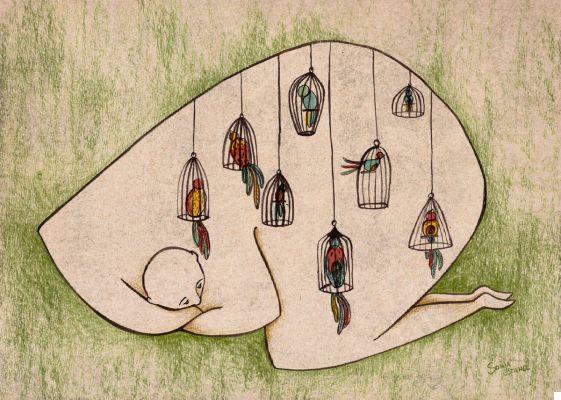 We don't usually pay much attention to the words we say, but we are born communicators. Indeed, it seems like a contradiction, but the truth is that we spend all day communicating not only with others but also with ourselves. However, our communication style is automatic, it is something that has been forming over the years, drawing on our experiences, and we now use it without being fully aware of it, so we use some words more than others. For example, a study carried out at the University of Colorado revealed that people who tend to be neurotic use a large number of words associated with negative emotions. Another study, this time conducted by the University of Amsterdam, found that extroverts prefer to use more abstract and descriptive terms while introverts choose more specific adjectives.
We don't usually pay much attention to the words we say, but we are born communicators. Indeed, it seems like a contradiction, but the truth is that we spend all day communicating not only with others but also with ourselves. However, our communication style is automatic, it is something that has been forming over the years, drawing on our experiences, and we now use it without being fully aware of it, so we use some words more than others. For example, a study carried out at the University of Colorado revealed that people who tend to be neurotic use a large number of words associated with negative emotions. Another study, this time conducted by the University of Amsterdam, found that extroverts prefer to use more abstract and descriptive terms while introverts choose more specific adjectives.Therefore, it is useful that every now and then we pause to consider the words we commonly use, especially if we think that the words we use are not only about the image that others have of us but can also affect our self-esteem. Consequently, I now propose a few words that we should learn to use more often, but consciously, not like automatons.
Simple words that involve big changes
1. Why. A very simple word, but with enormous power. In fact, a study conducted at Harvard University called it "the most persuasive word in the world". In this experiment it was observed that when people asked for a favor by adding a "why", the chances of the other accepting increased by 30%. The point is, when we ask for something and explain why we want to be heard, we are showing that we respect and trust the other person. We appeal to your understanding and invite you to put yourself in our place.
2. Thank you. It is not a question of saying thank you out of obligation or inertia by repeating this word automatically or because it is synonymous with "good education", but really thanking from the depths of ourselves. The difference is remarkable because it allows us to connect with others, communicating that we appreciate their gesture and that it has helped us. In fact, this word has a strong comforting power, both for the one who says it and for the recipient.
3. I'm sorry. Few words are as powerful as these, but only when they are born of sincere repentance. When we say "I'm sorry" we are acknowledging a mistake, but above all, we are expressing our humility and the desire to repair the damage. However, we cannot abuse it. A study conducted at the University of Rotterdam revealed that we tend to overestimate the effect of apologies and that they are only effective when they are sincere and clarify our situation.
4. Come on! The world is made up of good intentions, but in reality the change happens when we roll up our sleeves and get to work. Unfortunately, we are experienced procrastinators, we continue to postpone change for a more auspicious time. However, when you are sure of a goal, once you get close to the goal you should just start; we will find out how to proceed along the way. Remember that even the longest journey begins with the first step.
5 Do not. Setting boundaries and learning to say "no" is critical to leading the life you truly want. It is not about having denial always on the tip of the tongue, but we must make it clear what our priorities are and when we are willing to help and when not. If you can't or don't want to do something, just say “No” and give a reason, the more concise the better, otherwise it looks like we're apologizing. Remember that you have the right to invest your time and energy in the things that give you the most satisfaction.
6. Well ... When you make a mistake, do you get angry and scream, or do you complain, blaming yourself for what happened and denigrating yourself? This is how most people react. But this only makes the situation worse. So when things don't go as planned, just say, “Well, it didn't go as planned, but…” It is inevitable to make mistakes, but there is no point in crying over spilled milk, try to see the good side of things. It is a simple word, but it involves a huge shift in perspective.
7. Breathe. Whenever you feel on the verge of exploding, when you are angry or when your stress is at its peak, mentally (or aloud) repeat the word "breathe" to yourself, and do it. At any time if necessary. Breathing helps us tune into the same frequency as many of the metabolic functions that are impaired when we are angry or stressed; such as blood pressure and heart rate. Breathing slowly is a great exercise that will help you calm down and avoid making mistakes. Breathe ... breathe ... breathe ...


























